READY TO GET STARTED?
REQUEST A FREE ESTIMATE
Fill out the form below or call (888) 466-7849 for a free, no-obligation estimate.
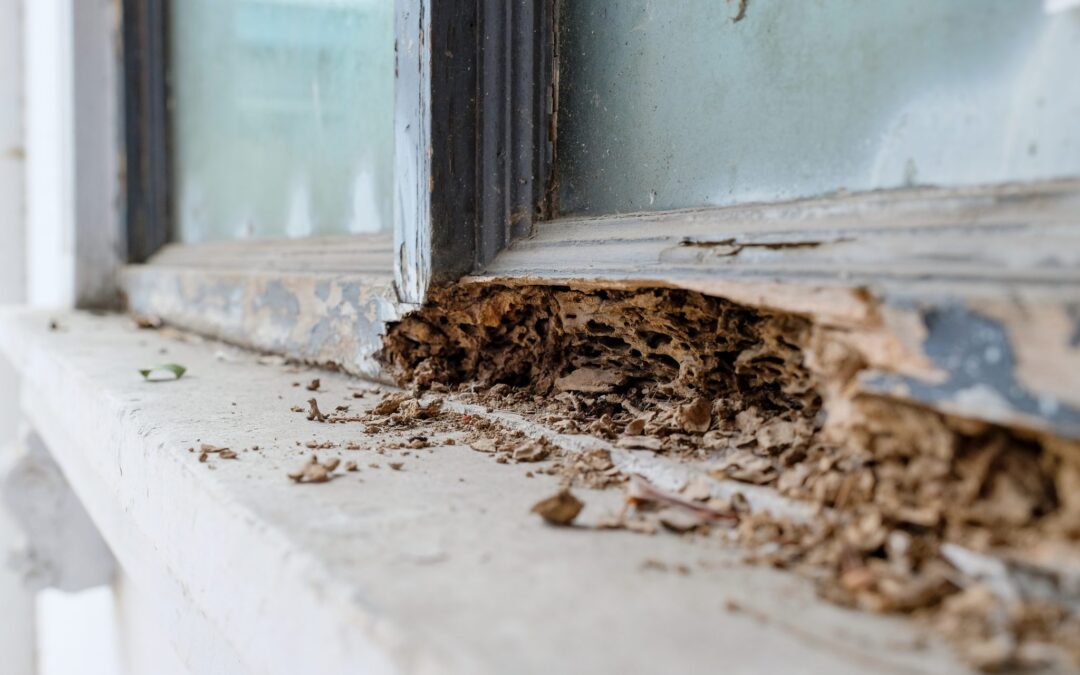
Drywood termites may be small, but their impact on Tennessee homes can be massive. These pests burrow deep into wood, causing hidden structural damage that weakens your property and reduces its market value. Left unchecked, they can lead to costly repairs, hurt resale prospects, and threaten your home’s health. Here’s how to protect your investment.
Unlike subterranean termites, drywood termites don’t need soil to survive. They infiltrate timber in walls, floors, and furniture, often going undetected until damage is severe. The long-term consequences include:
Detecting drywood termites early can save you thousands. Watch for:
Preventative measures are your best defense. Follow these steps:
For a greener solution to infestations, try:
Don’t underestimate the cost of inaction. Drywood termites threaten your Tennessee home’s value and overall health. Act early to spot infestations, prevent damage, and keep your property market ready. Consult pest control professionals to ensure your home remains a secure and termite-free investment.
Ready to get started? Give us a call or click the button below for your FREE termite control quote!
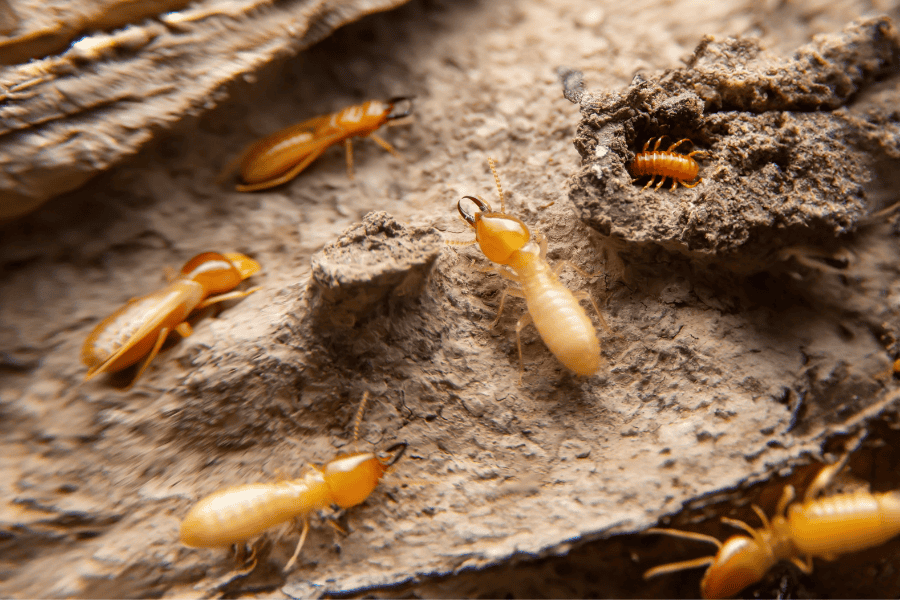
With rising temperatures and changing climate patterns, termites are becoming a growing threat to homes in Bonita Springs. In 2025, it’s more important than ever to adopt proactive measures to prevent infestations before termite swarms take over. This guide will cover smart technology, eco-friendly solutions, and effective termite prevention tactics to protect your home while staying green.
Climate changes have made Bonita Springs an ideal environment for termites, especially subterranean species like the aggressive Formosan termite. Warmer winters and increased rainfall mean longer breeding seasons and more frequent swarms. Early detection and action are key to preventing structural damage from these wood-eating pests.
Eco-conscious homeowners can opt for natural, non-toxic solutions to manage termite threats. Organic baits, cedar mulch, and essential oils create a pest-repelling environment without harming the ecosystem. Borate-based treatments protect wood without the need for harsh chemicals, making it a healthier choice for families, pets, and the environment.
Physical barriers, such as stainless-steel mesh and termite shields, are becoming the go-to for long-term termite protection. These systems block termites from accessing your home, offering durable, chemical-free protection that doesn’t require frequent reapplication. They’re a great complement to other eco-friendly strategies.
Moisture-rich areas are a magnet for termites. Ensuring proper drainage and maintaining dry, well-ventilated spaces will reduce the risk of an infestation. Regular inspections by professional pest control services are essential to catch early signs of termite activity, especially for homes at higher risk due to moisture or structural vulnerabilities.
While DIY efforts can help, professional termite control services are vital for thorough prevention. Pest control experts can offer tailored solutions, including eco-friendly treatments and physical barriers, ensuring comprehensive protection. Their experience helps identify hidden vulnerabilities and prevent costly repairs.
Termite damage can be expensive to repair, often requiring wood replacement and structural reinforcement. Since most homeowners’ insurance doesn’t cover termite-related damage, investing in prevention now can save you significant costs down the line.
The future of termite management lies in sustainable, long-term solutions. By combining eco-friendly treatments, smart technology, and preventative barriers, homeowners can protect their properties while minimizing their environmental impact. Staying informed about the latest pest control strategies and committing to sustainable practices will ensure lasting protection against termites.
Termite prevention is crucial for Bonita Springs homeowners in 2025. With the increasing threats posed by climate change and termite adaptation, staying proactive with eco-friendly methods, smart technology, and is essential. By adopting these strategies, you can protect your home and enjoy peace of mind, knowing your property is protected from costly termite damage.
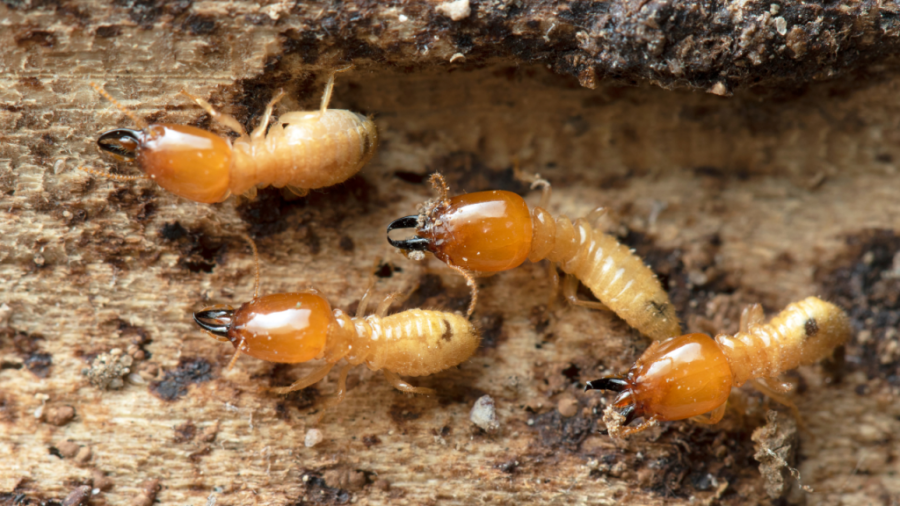
As a homeowner in Fort Myers, you’re no stranger to the warmth and humidity that create the perfect breeding ground for termites. These pests may seem harmless at first, but they can cause devastating damage to your home if left unchecked. In fact, termites are responsible for billions of dollars in property damage each year across the U.S. — and Florida is one of the most affected states. Here’s why termite prevention should be a top priority for any Fort Myers homeowner.
Your home is likely the largest investment you’ll ever make. Termites can silently and steadily eat away at the wood structure of your home, causing costly damage before you even realize there’s a problem. Preventative measures, like annual inspections and professional treatments, can save you from a costly and stressful repair bill down the road.
Fort Myers’ tropical climate is ideal for termites, especially the destructive subterranean variety. The moisture in the air and the warm temperatures year-round provide the perfect environment for termites to thrive. Without proper prevention, you’re putting your home at a higher risk of infestation.
Treating an existing termite infestation can cost thousands of dollars, especially if structural repairs are needed. Preventing termites before they invade your home is far more affordable and less disruptive. Routine inspections by a pest control expert can identify signs of termite activity early and help stop infestations before they get out of hand.
Termites target wood, and that’s exactly what your home’s frame is made of. Over time, even a small infestation can weaken the structure of your home, leading to expensive repairs or even unsafe living conditions. Regular treatment and monitoring give you peace of mind, knowing that your home’s foundation is secure.
The key to effective termite control is early detection. If termites are caught in the early stages, they are much easier—and cheaper—to eliminate. Professional pest control companies use the latest technology such as Sentricon to spot termite activity even before it becomes visible to the untrained eye.
In Fort Myers, termite prevention is not just a good idea—it’s a necessity. With the right precautions in place, you can protect your home from these destructive pests and avoid the high costs associated with repairs. Don’t wait until it’s too late—schedule an inspection today and take the first step toward protecting your home from termites.
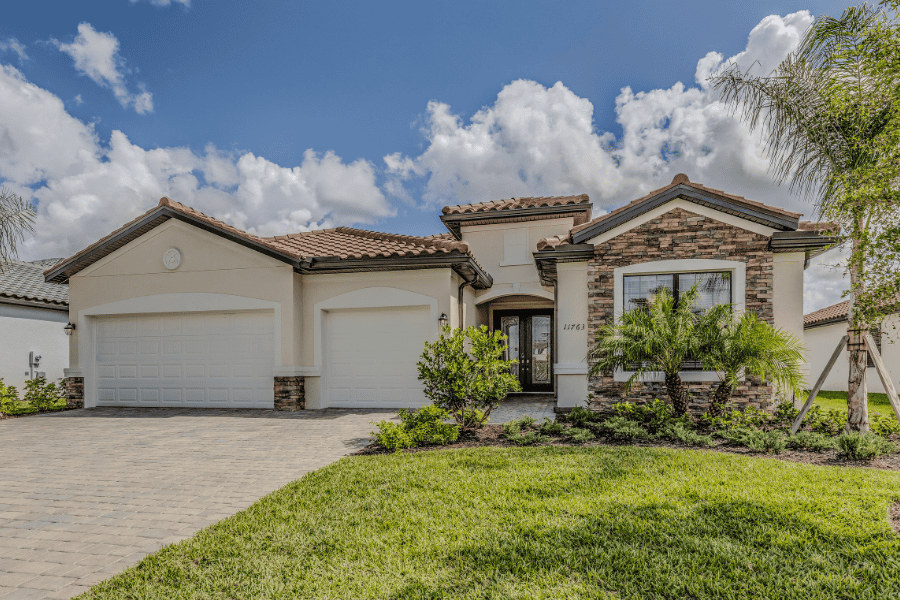
Drywood termites cause significant damage to homes and structures if left unprotected, causing millions of dollars in repairs. Unlike their counterpart, the subterranean termite, drywood termites live entirely within the wood they infest, making them challenging to control. Luckily, there are several effective drywood termite treatment options available to Florida residents to eliminate and prevent these pests! Let’s explore these treatment options.
Fumigation involves tenting an entire structure and utilizing gas to penetrate the wood and eliminate termites. This method can be highly effective at eradicating termites, eliminating any that are present on the property. Fumigation is also known to treat large termite infestations throughout an entire structure. Fumigation does require the occupants to vacate the property for several days.
Professional termite experts will directly inject an advanced, non-repellent product into drywood termite galleries to eliminate the termites found in a home. The no-tent treatment is slow acting, which allows termites who encounter the product to take it back to the queen and colony to eliminate it. This method is a great alternative to the fumigation method if you would rather avoid leaving your home.
The best way to ensure that you don’t end up with a drywood termite invasion is to deter them away from your home in the first place. Check out our DIY tips to preventing drywood termites:
While these tips will support efforts to deter termites, if you notice termite activity on your property, it’s best to call a termite control company near you to start termite control treatments and schedule an annual termite inspection to prevent future infestations.
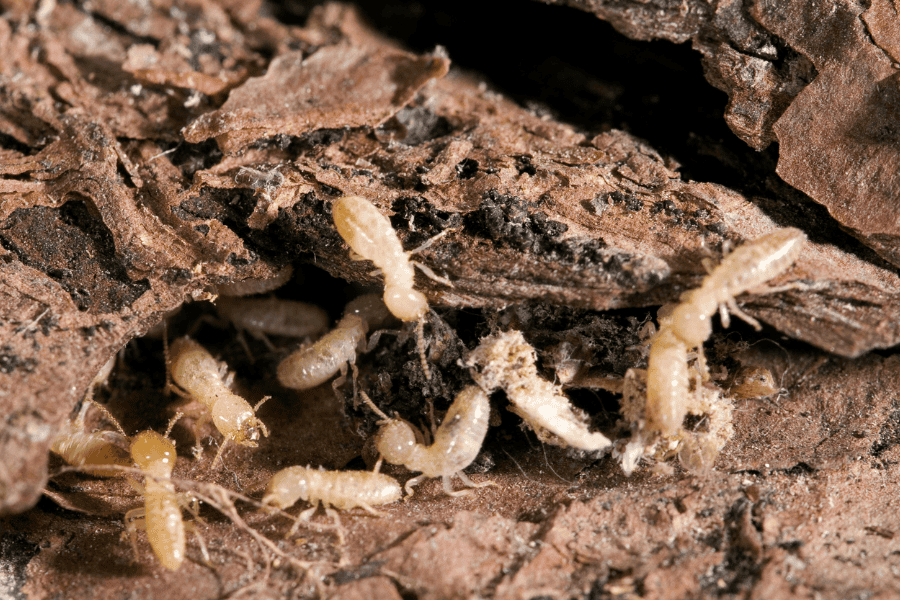
There are two common termite species Florida homeowners should know: the subterranean and drywood termite. Both termite species can cause structural damage to homes and cause thousands of dollars in repairs. One of the best ways you can avoid their damage is understanding their characteristics and the preventative measures to place around your home to deter them away. Let’s explore the differences between drywood vs subterranean termites and how you keep them from infesting your home.
Drywood termites thrive in dry wood, often infesting furniture, frames, and other wooden structures without them needing contact with soil. Once they have infested, they will cause damage by hollowing out wood from the inside out. A good indication that these termites infested your home is finding small piles of wood pellets or frass, tiny holes in wood surfaces, and discarded wings near windowsills or light fixtures.
Subterranean termites live underground and build mud tubes to reach food sources above the ground, often destroying foundations and support beams in the process. These termites need soil and moisture to survive and build their colonies. Signs of a subterranean termite infestation include finding discarded wings and mud tubes on exterior walls, foundations, or crawlspaces.
There are several preventative measures you can utilize to deter termites away from your Florida property. Let’s review do-it-yourself termite prevention tips:
While these tips will support efforts to deter termites away, it is always best to schedule an annual termite inspection with a professional termite control company near you. These professionals can detect termite signs early and quickly provide your home with the appropriate termite control and prevention plan.